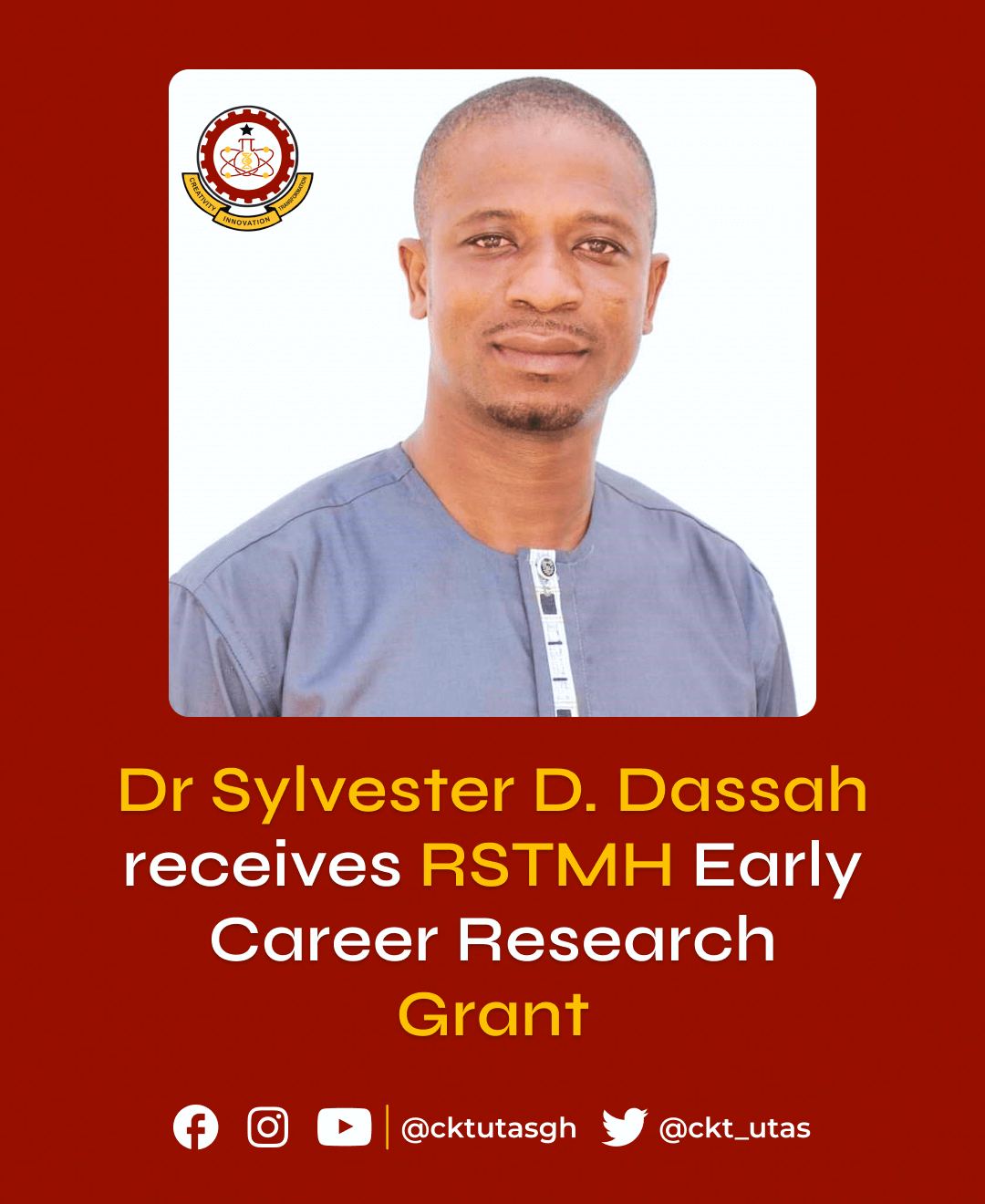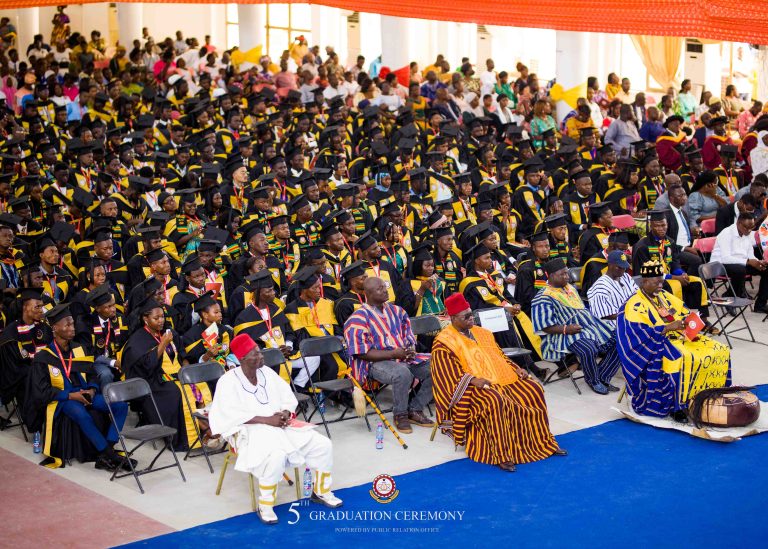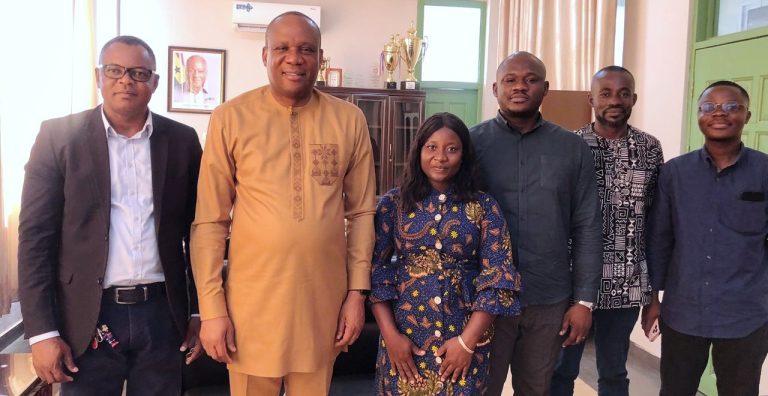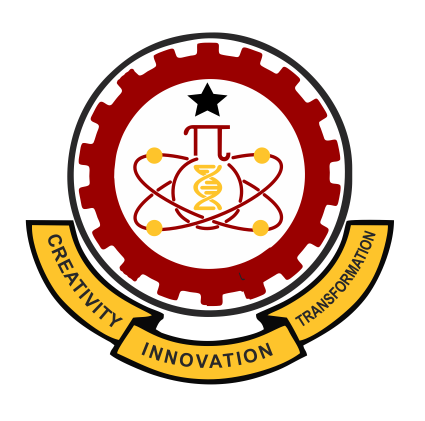C. K. Tedam University of Technology and Applied Sciences lecturer, Dr Sylvester D. Dassah of the Department of Biochemistry and Forensic Sciences has been awarded an early career research grant by the Royal Society of Tropical Medicine and Hygiene (RSTMH).

His proposal was selected and funded by RSTMH in partnership with the Children’s Investment Fund Foundation (CIFF).
The RSTMH Early Career Grants Programme supports the next generation of tropical medicine and global health professionals, growing their skills and networks, improving confidence, and enabling the development and dissemination of interesting and innovative outcomes in tropical medicine and global health.
The RSTMH is a charity and membership society that has been dedicated to improving tropical medicine and global health since 1907. Its ambition is to save lives and improve health around the world through increased access to and greater equity in global healthcare.
The RSTMH and CIFF partnership involves funding meant to strengthen skills, networks, and careers of Early Career Researchers working in the area of Neglected Tropical Diseases (NTDs) across Africa.
Dr Dassah’s research focuses on schistosomiasis in pregnancy: Exploring determinants of risk in Northern Ghana for optimal interventions and antenatal inclusion.
The research seeks to evaluate a vulnerable population excluded from the implementation of mass drug administration with praziquantel in Northern Ghana for the control of schistosomiasis. It will further help improve the health of pregnant women and their unborn babies.
He is currently working on a project investigating the contribution of parasitic infections, specifically schistosomiasis, soil-transmitted helminths (STHs), and malaria and anaemia in pregnant women.
Dr Dassah’s research interest is in infectious diseases and NTDs identifying biomarkers of protection, particularly the interplay between the host immune system and genetic factors in disease control.
His research interest further includes global health, the synergy between infectious and non-communicable diseases- “the double burden of disease”.






